Most kittens will munch down whatever food you put in front of them and eat it as quickly as they can. This is learned behavior from when they were fighting their siblings for milk. But you will get the occasional kitty who is quite happy to graze their food.
If you have a kitty like this and wonder whether you should let your kitty graze with food being available all the time, here’s a warning not to and why.
Should you let a kitty graze? No, you should not let a kitty graze at their food which is available all day. Grazing has more negative effects than benefits. Whilst grazing might cater to your kitten’s hunger pangs, it could cause health problems and make it harder for you to train your kitty.
Is there a better feeding method other than grazing? Well, yes there is, and I will explain more below including the disadvantages of grazing kittens. It will soon make sense why you should use a more effective feeding method, like scheduled feeding.
Free feeding 101
Here’s why you should think twice before grazing your kitty
In the kitty world, “to graze” or “not to graze” a kitty is often a hot topic of debate. Some kitty owners believe that grazing is perfectly okay (yes, this feeding method works for some kittens), while other owners feel grazing does your kitten more harm than good (and they’re right, to some extent).
Let me first get the definition right.
Grazing, or free feeding as others call it, is the practice of leaving out an unmeasured amount of food (or a “buffet” of kitty food in bowls) for your kitten, and giving them the freedom to eat, or rather “graze” on the food bowl throughout the day.
“Free feeding means leaving a large quantity of food, usually dry, in one or more bowls on the floor, providing easy access to food whenever a cat feels inclined to eat. Whether you have one cat or ten, this is a ticking time bomb waiting to explode.”
Kitty owners who use this feeding method prefer it mostly because of its convenience. All that’s needed is to fill up your kitten’s bowl, refill when food runs out, and walk away.
That’s it!
Our little furry friends are the epitome of unconditional love, and they deserve the best. Sometimes, the most convenient option may not be what’s best for your kitty, as is the case with free-feeding (in my opinion).
If you choose to free feed, therefore letting your kitty graze, then here are some problems your kitten — and you as their caretaker — are likely to run into:
1. Your kitten risks being obese
When you let your kitty graze it means letting your kitten eat any time they want and any amount they want. No pressure. Your kitty may constantly eat to the point of bloating or resort to eating when bored.
As harmless as it may look, free-feeding can mark the start of your kitten’s journey with obesity and other weight-related health issues.
There’s research to back this up.
According to recent research, 59.5% of cats in the US are obese. A whopping 59.5%! And your guess is as good as mine. Overeating is a huge part of the problem.
And as you may probably know, obesity is the leading cause of preventable deaths among our feline friends.
So, if you’d want to stay mindful of your furry friend’s weight, then grazing is a no-no.
2. Expect more potty accidents
When you opt to free feed your kitty, every hour of the day is feeding time. And that’s how you’ll sign up for frequent potty accidents in your home.
You see, when your furry friend has a scheduled feeding time, it’s easy for you to predict when they’ll have their post-meal potty break. That way, you can take your kitten to the chosen potty area at the correct time each day.
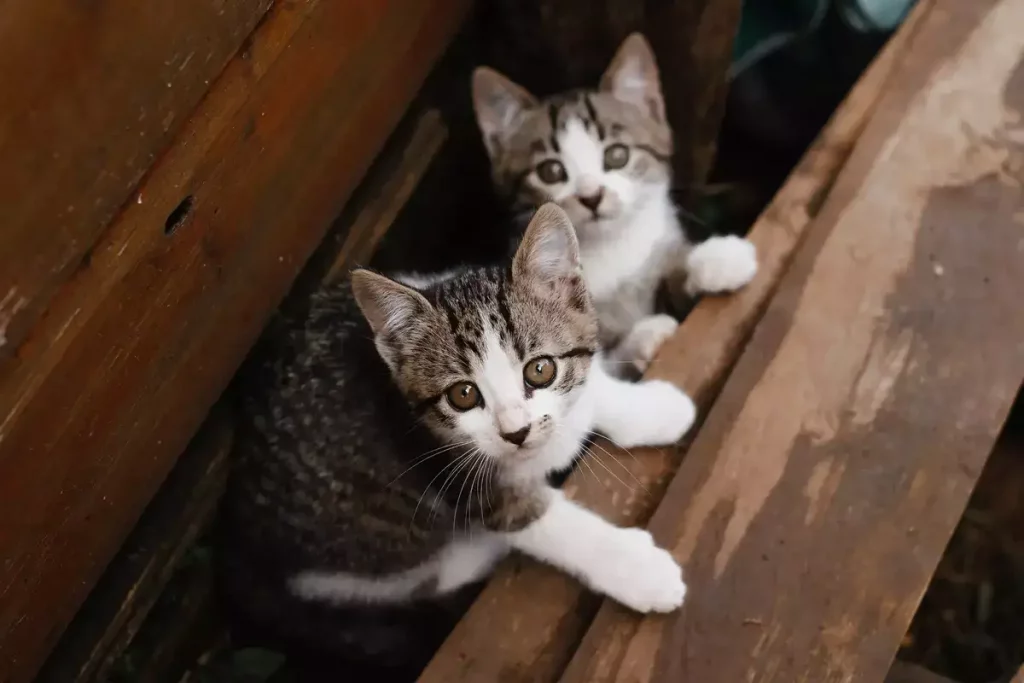
Now, if you settle for letting your kitty graze, your kitten will experience the urge to potty several times a day because of uncontrolled eating.
The worst part? They may end up peeing or pooping in different places because there’s no one to direct them to their potty spot after mealtime.
3. Free feeding equals missed training opportunities
When you leave your kitten to feed at random times during the day, you’ll miss out on a chance to train and bond with them during these mini-training sessions.
Here’s how.
Kittens, just like adult cats, will do anything for food. And anything, in this case, means following all your commands when you’re almost getting them ready for their next meal.
When your kitty is hungry, that’s one of the best times to practice the “leave it!” “sit!” “No!” and other commands you want to bring your kitten up to speed.
They’ll willingly listen to what you have to say to “earn” their meal.
And when you finally fill up their bowl with their favorite food, your furry friend will think of their meal as a jackpot for listening to you and acting right.
With grazing, you can’t schedule your kitty’s training around their feeding time because your kitten may not be there when you leave food for the day.
4. Your kitten can become less food motivated
When food is available all day long, your furry friend will no longer see it as something valuable. And guess who’ll pay the price for this sudden disinterest in food? You!
You’ll have a hard time encouraging them to try out new foods because, to them, it’s the usual ol’ bowl of food! Nothing to get excited about.
Also, you already know that when food sits in the open for an extended period, it becomes stale and attracts all the bad stuff — flies, ants, and other unwanted insects.
Your kitten wouldn’t like that, period.
So, while you’re letting your kitten graze, you may think she’s eating to her fill. Yet she doesn’t touch her food most of the time because of these annoying little intruders.
5. You’ll have a hard time monitoring your kitten’s appetite
With free feeding and grazing, it’s easy to assume your kitty has enough food for the day and thus can’t stay hungry. And for that reason, you won’t be keen on how much your kitten has eaten — provided their bowl is always sorted.
If your kitten is unwell and their appetite suddenly goes down, it can be hard for you to notice right away. Plus, when you finally discover these appetite changes and take your fur baby to the vet, you’ll struggle explaining how much your kitten eats or how long they’ve been off their food.
But if you put your kitten on a consistent feeding routine, you’ll be there to serve them when it’s mealtime. So if your kitty is sick, it will be easy to tell.
Maybe your feline friend may not show excitement when you’re filling up their bowl. Or simply sniff the food and turn their head away.
Either way, you’ll know something’s not right.
Say goodbye to the buffet lifestyle
No doubt, grazing isn’t the best choice for your kitten.
But you know what is? Scheduled feeding, that is, feeding your kitten portioned meals at specific times of the day.
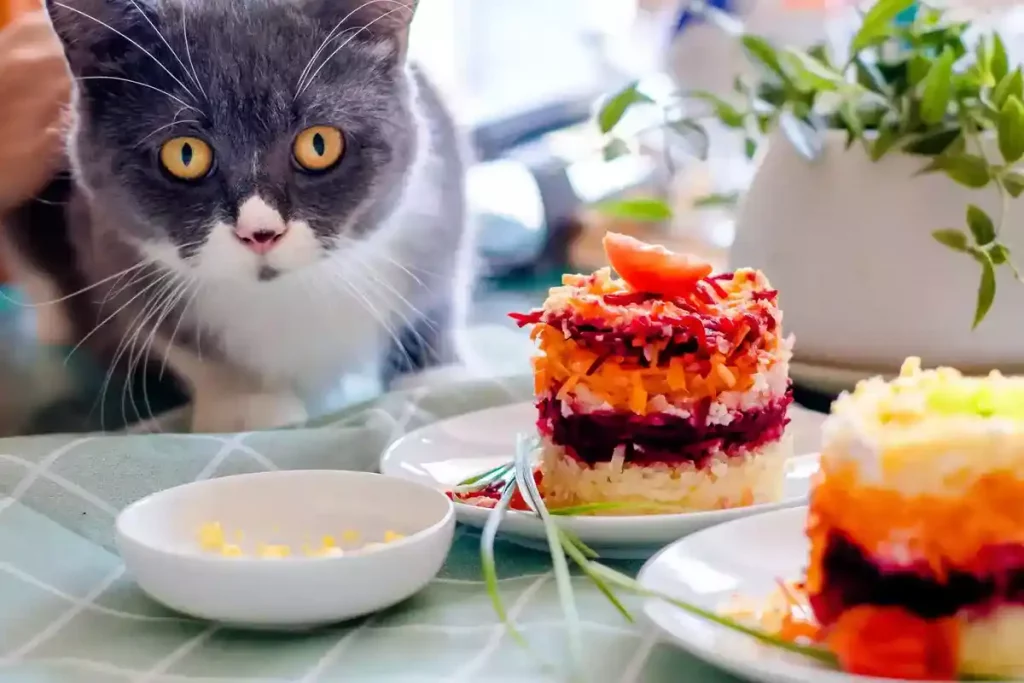
If you’ve been free feeding your kitten and would like to switch to schedule feeding, it would be helpful to consult your vet. They’ll advise you on how to make a smooth transition in a way that works for you and your kitten.
Common questions
Is it okay for kittens to graze?
As mentioned, a little earlier, it’s not okay for kittens to graze because free feeding has several disadvantages, from increasing your kitten’s risk of obesity to making them exhibit inappropriate potty habits, and reducing their motivation for food.
How do I stop my kitty from grazing?
It’s best to first talk to your vet about your plans to stop grazing your kitten, and they’ll guide you accordingly. But the bottom line is this – you are responsible for your kitty grazing, not the kitty.
Should I leave out food for kitty all day?
It’s not a good idea to leave out food for your kitten because the food loses its freshness when it sits in the bowl the entire day, making it unappealing. Plus, the food can attract all sorts of insects when left outside.
Is it okay to free feed a kitty?
Free feeding isn’t a good feeding method because your kitten may become overweight, have endless potty accidents, and lose their food drive. This method will also make it difficult for you to track your kitten’s feeding habits.
Conclusion
I have never let any of our cats graze as kittens. I believe that by having a routine, kittens will learn and adapt their behavior quicker as to what is acceptable in your home.
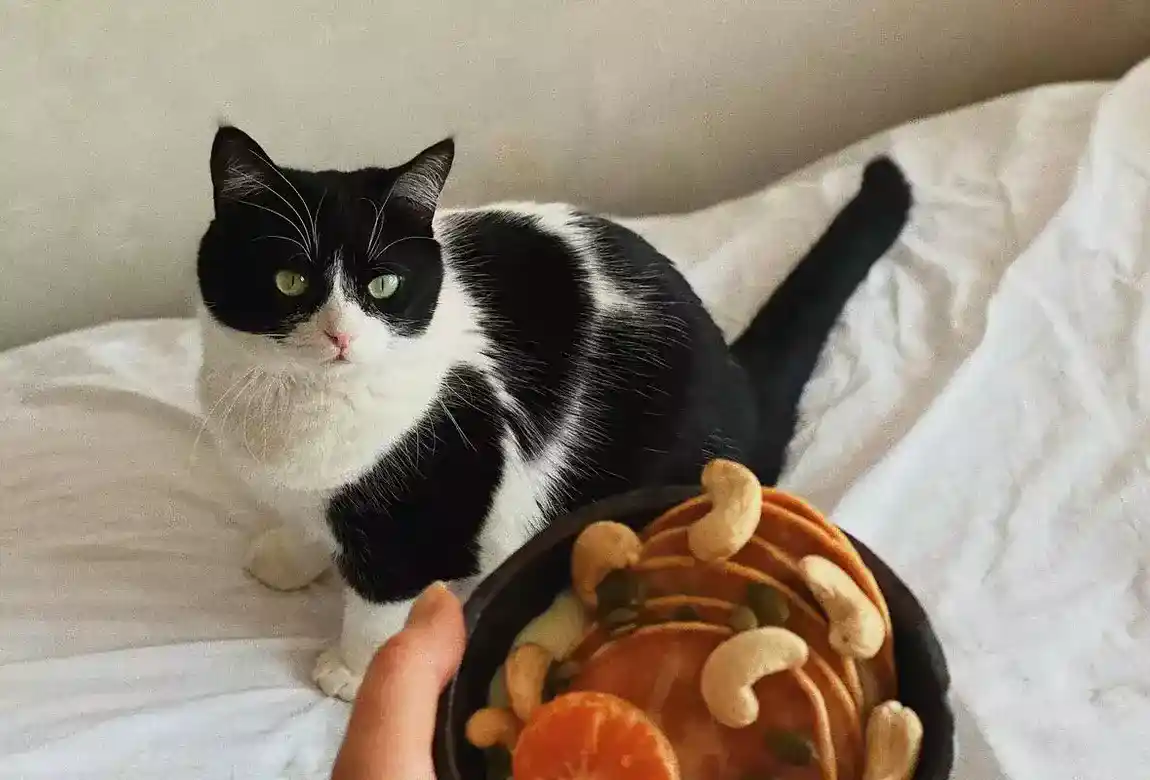
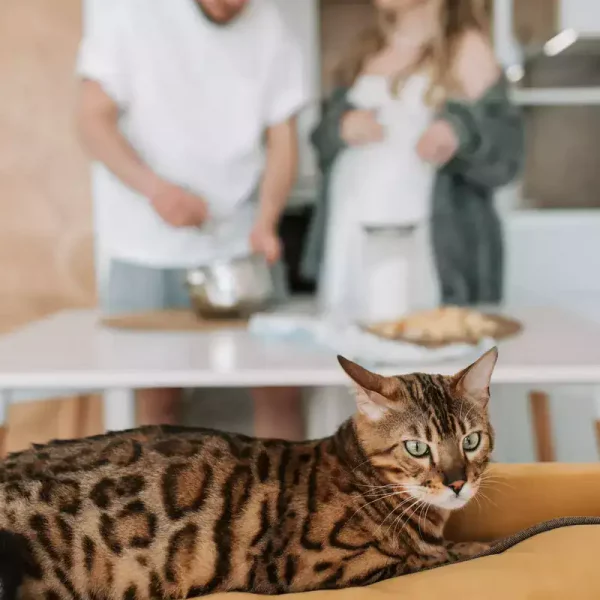
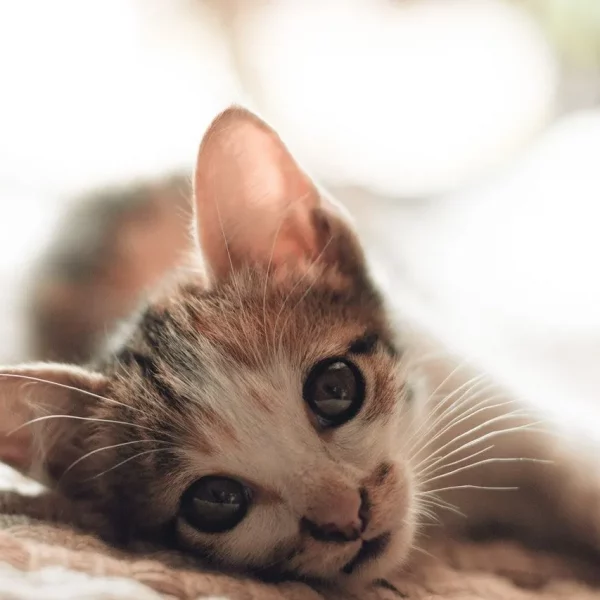
Leave a Comment